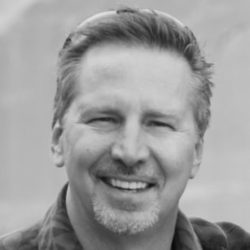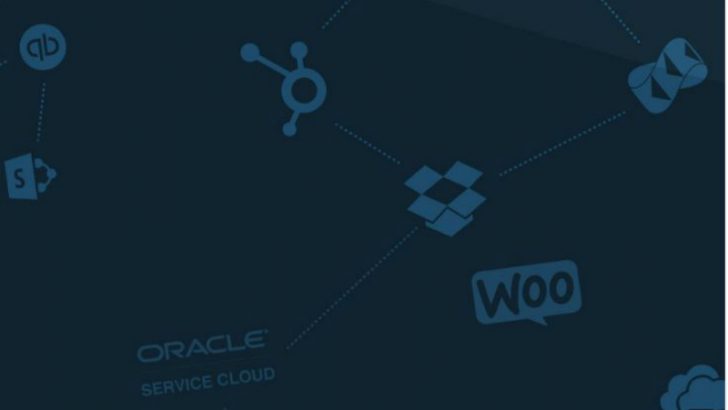
Mark Geene is the founder and CEO of Cloud Elements. He has worked in enterprise software companies including IBM and Oracle. Cloud Elements is his third startup company. Cloud Elements is a cloud API integration platform that enables developers to publish, integrate, aggregate and manage all of their APIs through a unified platform.
ET: Who is your inspiration, and why?
Mark: “Marc Benioff is an inspiration to me because he’s a leader who saw a market and used his passion for simplifying things to be a success. That’s our approach at Cloud elements. Taking something that has been really complex which needed IT organizations and consultants to integrate it. Our vision is to make it simple and easy to use for anybody. Really democratize it. I love how he did that in the CRM world. He took Siebel, Oracle, SAP and their complexity and he took the complexity out. “
ET: How would you describe your leadership style?
Mark: “My background is in product management and product marketing. I’m driven by a product vision. I drive everything through a lens of how that relates to the product direction. As a leader I have a hands-on approach. I really believe in the philosophy that you don’t ask people to do things you won’t do yourself. I’m passionate about giving everybody in the team an opportunity to be leaders. To not just have a direction coming from the top but letting it emanate from whoever is closest to the problem.”
At this point his colleague interrupted to clarify: “You can describe that as being a servant leader. Among our core values are freedom, flexibility, and responsibility. He gives the responsibility to the entire team to help set the direction of the company.”
ET: How does software support your business?
Mark: “We are a 100% Cloud-based business. We don’t own a server. I think at last count we had about 23 SaaS [Software as a Service] applications running our company.”
ET: What are the key challenges currently faced by your industry?
Mark: “We are part of the software industry in which I think the key challenge is fragmentation. Applications are proliferating. In the marketing automation space alone, the number of solutions are in the thousands and it’s doubling each year. Everybody’s being overwhelmed and asking how did I make all this of this stuff work together?
As I’ve already I mentioned we have 23 different SaaS applications we’re using in our business. We can all pick the best of everything we want, but then, how do we make sure they’re not all just islands of data?“
ET: What are your personal challenges in the next 12 months?
Mark: “My personal challenges are to stay fit and get exercise in between all the traveling I’m doing. Also just enjoy what is going on. Sometimes you just get so caught up, running from one thing to the next.”
ET: What are your business challenges the next 12 months.
Mark: “To manage growth. We are growing at a 40% quarter over quarter rate which is more than most companies are growing in a year. Everything breaks inside six months when you’re growing that fast. Every process and system you have in place has to change and adapt. I think as a company just kind of recognizing that pace of change is a challenge.“
ET: What was your darkest business day?
Mark: “My darkest days are when a customer leaves us, customer churn. In the SaaS business, the recurring revenue business, your life blood is your customers. I think the two things that always impact me the most really are when a customer leaves us or an employee on our team leaves us.”
ET: How did you overcome that?
Mark: “Getting passionate about customers first and passionate about customer service. To do whatever we have to do to keep our customers. I don’t like losing customers. I also get passionate about our team. We have to make sure we pay attention about how to give everybody on our team the opportunities to develop the skills they want.”
ET: What was your proudest moment?
Mark: “My proudest moment was being part of the executive team of a company that went public, Tenfold”.
ET: Can you share a tip for new CEOs?
Mark: “Just recover from perfectionism. I’m a recovering perfectionist and my tip for other CEOs is don’t chase perfection; iterate. One of our core values is iterate to success. Chase perfection but don’t get obsessed with it out of the box. Get something to market and then you embrace the feedback and continue to improve and improve.”
ET: Should every CEO be an entrepreneur?
Mark: “No. I think as the company scales up, there’s entrepreneurial CEOs who have the vision and passion, but sometimes they’re not the ones who can put in the process and structure as things scale up. You get very good executives at different stages of a company that bring the discipline. Sometimes the creative rapid-fire minds of us entrepreneurs don’t have that level of discipline and structure.”
ET: “Do you have any tips for CEOs looking to raise funds?”
Mark: “You have to communicate a big vision but with a very pragmatic approach to executing that vision. If you’re all vision and no pragmatism, you won’t get funded. If you’re all pragmatism and no vision you won’t get funded either, right? It really has to be that balance because investors want to know that you’re going to change the market. That they’re going to get their 10 times more return. They also want to know you’ve got a practical plan, an affordable plan, to get there.”
ET: What was the latest business book you read, your favorite book.
Mark: “The one I’ve read recently is “The Hard Things About Hard Things” by Ben Horowitz, the co-founder of Andreessen Horowitz. Taking his practical experience as a CEO, and going through near-death experiences with this company as the CEO at OfficeWare. It’s like a Bible for a CEO. “
ET: How do you prioritize day-to-day work against the strategic things?
Mark: “Not very well! I think the key is to have a set of strategic pillars. We have four strategic pillars and I really just try to align the team to make decisions around those strategic pillars. I don’t worry about necessarily every item underneath each strategic pillar. As long as the activities in the day-to-day are fought through that tends to make progress toward those strategic pillars. I’ve learned that you can’t really do more than three or four strategic initiatives as well. You do more than that and it’s polluting the effort. Then it just becomes a bunch of activity, and you lose the strategy.”
ET: How did you keep believing in your vision when the odds are stacked against you?
Mark: “I always go back to our values. I’ve a core set of values for the company and as an individual. Whenever I get down about our progress against our vision, I always remind myself we’re just iterating to success. Every one of the pitfalls is a new learning that we just have to adapt to.”
ET: What’s the one question you would like to ask another CEO to answer?
Mark: “How do you prioritize your day? I’d love to hear how other CEOs and executives split up their time. Where and how much time they’re spending in different areas. I had somebody give me a great piece of advice recently where they said you should be spending 90% of your time with your best people and 10% your time with the lower performers. It is almost counter intuitive. It’s the things like that that are great lessons.”
ET: And how would you can answer it yourself?
Mark: “I try to focus on customers, on product, our messaging. Usually those are the areas where I’m spending the most of my time. Also reflection time about how to adjust and tune all of the above.”
ET: Thank you Mark.



























